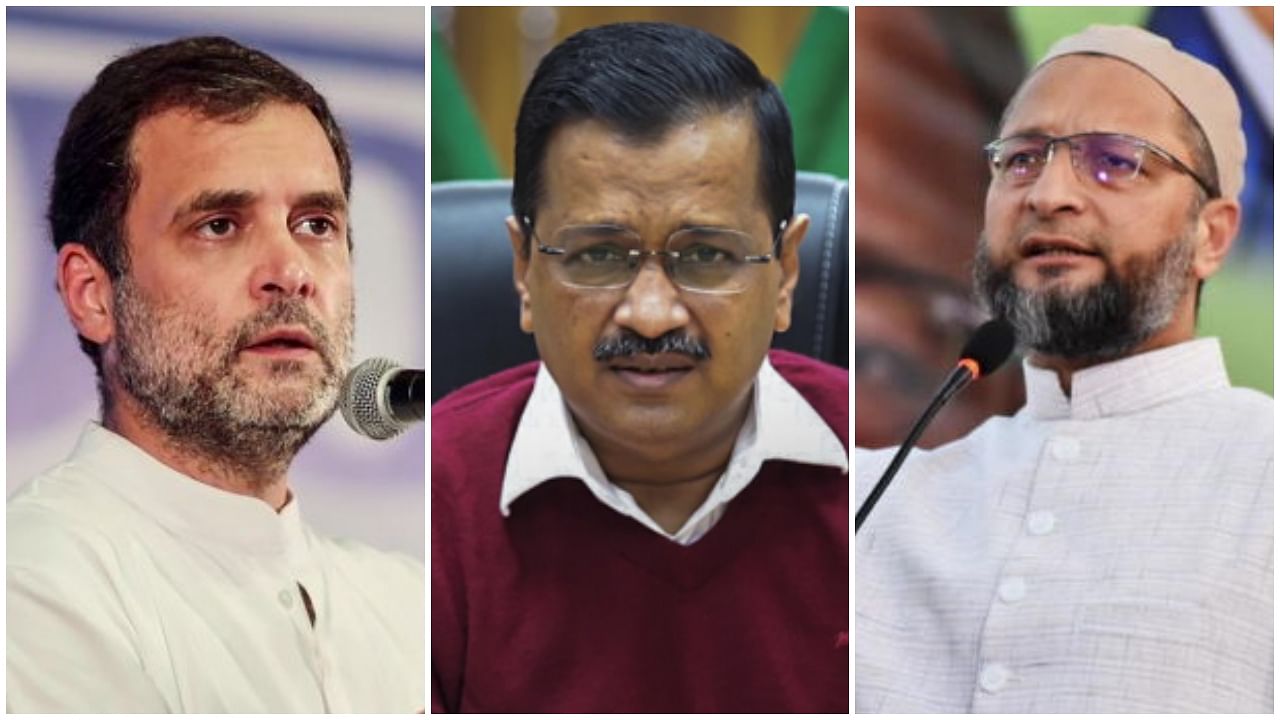
The All India Majlis-e-Ittehadul-Muslimeen (AIMIM) and Aam Aadmi Party (AAP) demanded that India not play Pakistan in the T20 Cricket World cup. They pointed to the recent militant attacks in Kashmir, which have killed nine soldiers and 28 civilians, and which New Delhi has said are Pakistan sponsored. Meanwhile, the Congress is asking for accountability for the latest psyops the Chinese have unleashed - releasing a video showing injured, captured Indian soldiers from last year's Galwan incident, where India lost 20 soldiers. Why is the Opposition taking on the government on national security, where the Bharatiya Janata Party (BJP) and Prime Minister Narendra Modi are strongest in the public perception and the Opposition the weakest?
Not holding governments accountable for national security can be disastrous. The Americans found this out when the Democrats, always afraid of being accused of being soft, left the holy cow of national security to the Bush Republicans leading to the disasters in Iraq and Afghanistan. However, this is not the main objective of the Indian Opposition parties, whose primary motive is electoral.
Aiming for the next national Lok Sabha elections, the Opposition knows that should another security crisis occur before the 2024 elections, as happened in 2019, they will again lose this vote to Modi and the BJP, which owns these issues, unchallenged.
In India, when the Congress and others have been in power in recent decades, the BJP has often accused them of being soft on Pakistan and China, as did Modi, especially in his public speeches after the 2006 Mumbai bombings and the 26/11 terror strikes in 2008. The Congress-led UPA then avoided going to war and focused on the country's economic growth so that India become more assertive in the long run. So some of what is happening is holding the BJP true to its words. The BJP now faces governance constraints, and it cannot live up to its bombastic rhetoric, especially against much stronger China. This is why Modi has publicly denied any intrusion by the Chinese and does not mention China by name in his speeches.
By holding the BJP accountable for its previous insistence on suspending cricket ties with Pakistan, which is impossible in international tournaments unless one gives a walkover, the AIMIM and AAP's criticism shows that the BJP is no different from the Congress. It takes away the BJP's assiduously cultivated distinctiveness on issues of national security. They are also exposing Modi's earlier claims on Kashmir. The Centre had claimed that dismissing the state government and scrapping Article 370 would eradicate terrorism and bring the dawn of a Naya Kashmir.
The AIMIM, in particular, is making an interesting social-psychological push. By insisting that the Centre take a harder line on Pakistan, the AIMIM makes two key points: first, that Muslims are no less nationalistic than Hindus and second, that Indian Muslims should not be conflated with Pakistan, as the BJP often does. Not only is there no love lost, but Indian Muslims want a tougher line on Pakistan since its real or imagined activities harm them the most, via either Hindu backlash or guilt by assumed association. AIMIM chief Asaduddin Owaisi hinted at this when he said Muslims in the mainland would bear the repercussions of Kashmir attacks.
The AAP is steadily making a play on the BJP's monopoly on issues of nationalism, and to a lesser extent, religion. This now extends from slogans and flags to Pakistan, Kashmir, China and cricket. Though governance remains its strength, AAP chief Arvind Kejriwal seems to have realised that one cannot compete at the national level without an ideology. By positioning itself as a hard nationalist alternative to the BJP, without the excesses of violent vigilantism and Hindutva, it hopes to wean away some of the BJP's support base or at least lessen that party's electoral uniqueness. Frustrated with the increasing erosion of its powers in Delhi, the AAP has tried to put the BJP-led Union government in a spot.
Nationalism and national security are the few remaining issues on which the BJP remains strong in public perception. Thus, if done effectively, attacking the BJP on the national security nationalism turf can help the Opposition in the medium to long term. However, the Opposition needs to push on this consistently for this strategy to work. After all, it took the BJP-RSS half a century of vehement persistence to own these issues. The past few years have reminded us that championing these issues when in Opposition is easier than holding on to them in power.
(The writer is Associate Professor, Jindal School of International Affairs, OP Jindal Global University)
Disclaimer: The views expressed above are the author's own. They do not necessarily reflect the views of DH.